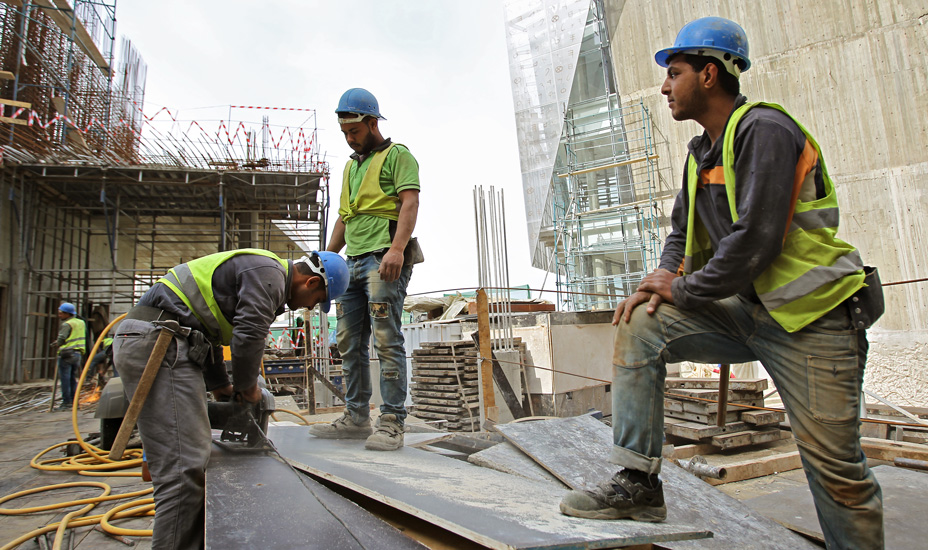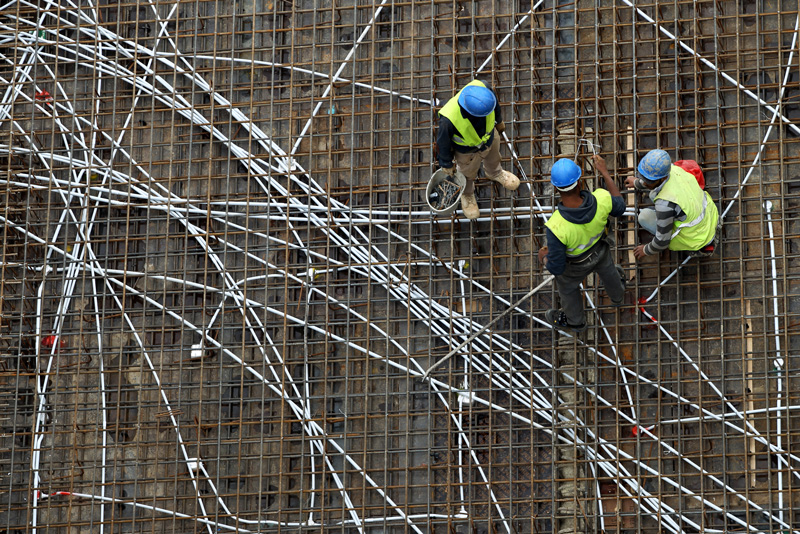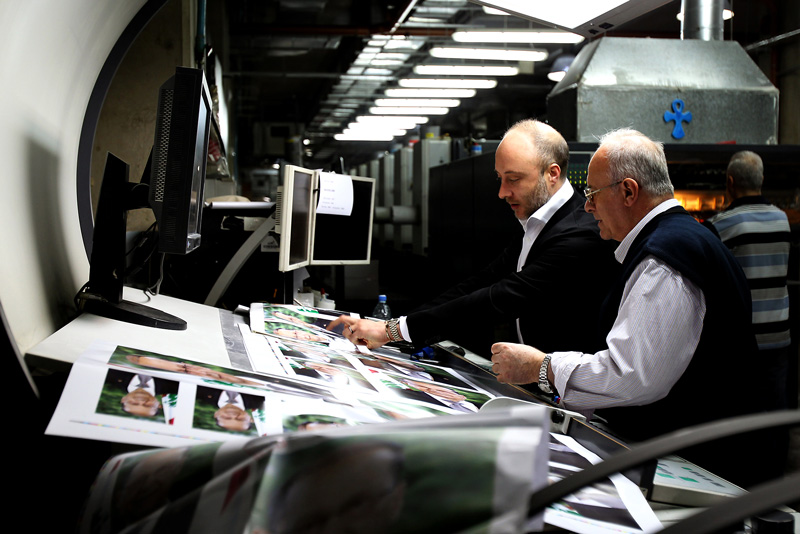
This story is part of a series on IFC’s work to help create markets that give new opportunities to people in developing countries. These innovative approaches have helped solve some of the largest problems in countries or, sometimes, entire regions.
 By Andrew Raven and Mohamed Essa, IFC Communications
By Andrew Raven and Mohamed Essa, IFC Communications
The Lebanese coastal city of Byblos, whose origins date back to 6000 BC, is one of the oldest continually inhabited settlements in the world. But in the cypress-filled hills east of the city's center, a thoroughly modern building is taking shape.
The three-story structure will soon be the main library at the Lebanese American University’s Byblos campus. Powered partially by solar panels and able to recycle rainwater, it will be one of most environmentally friendly buildings in the country when it opens later this year. "In the classroom, we teach about sustainability, efficiency, and the environment," says Roy Majdalani, the vice president for university services. "We should practice what we preach."
The university financed the library with a $15 million loan from Fransabank, one of the few lenders in Lebanon that finance eco-friendly construction projects. IFC’s new $45 million investment in a series of green bonds being issued by Fransabank will make it possible for more Lebanese institutions and companies to consider similar projects. Fransabank will raise money through the bonds then channel those funds to companies that want to invest in renewable energy and energy efficiency. Fransabank’s bond program—expected to total $150 million—could help finance Lebanon’s future solar arrays, wind farms, efficient buildings, and more.
Creating a Market for Green Financing
IFC helped officials at Lebanon’s Capital Markets Authority develop laws regulating green bonds last year. The green bonds that resulted from that effort are the first of their kind in the area. The program is part of IFC’s larger effort to create a market for green financing there.

“Fransabank has strategically positioned itself as a pioneer in addressing climate change issues and financing sustainable energy projects,” says Nadim Kassar, general manager of Fransabank. He believes that the green bond program will have a snowball effect, encouraging more companies to invest in green technology and creating a new market for renewable energy and energy-efficiency financing. “I think (the green bonds) will have a huge impact on the Lebanese banking sector, and we hope other banks will follow.”
Kassar’s comments reflect a more widespread sentiment. In Lebanon, renewable energy and energy efficiency are becoming increasingly important. The country relies on foreign oil to generate electricity, and is in the middle of a years-long power crisis. In Beirut, the capital, as well as other cities, blackouts routinely last several hours a day, frustrating residents and hampering businesses. Renewable energy—especially solar power—offers hope for companies looking to lessen their reliance on the national grid. In fact, Lebanon is aiming to generate 12 percent of its power from renewable sources by 2020.
Private sector financing is key, says Pierre El Khoury, general director of the Lebanese Center for Energy Conservation, a government agency. "The banking sector has a solid reputation in Lebanon," he says. "Through the relationship with international financing institutions we believe that green bonds could have a major impact on boosting the development of renewable energy in the country."
Switching to renewable energy makes financial sense for companies that rely on expensive—and polluting—diesel generators to supplement power from the national grid. That’s the issue compelling Raidy Printing, one of Lebanon’s largest publishers, to make a change. With a loan from Fransabank, the firm recently bought energy-efficient machinery and cut back on the chemicals and water it uses in the production process, says managing director Doumit Raidy. The company, which has 130 workers, is also investing nearly $700,000 in rooftop solar panels. Once installed, they will generate 30 percent of Raidy’s energy needs. The investment will pay for itself within eight years.
“It’s the right choice,” Raidy says. “I would encourage other companies to go green and to invest in solar and renewable energy.”
Eco-friendly is Bottom-line Friendly
At the Lebanese American University in Byblos, officials expect the eco-friendly additions of the new library to pay for themselves.
Along with its solar panels, which will power 40 percent of the building’s lights, the library collects rainwater that is used to irrigate plants and flush toilets. It has occupancy sensors to shut off lights when no one is around, as well as a double-skinned facade that prevents cooled air from escaping.

The money the university saves on power and water will allow it to devote more resources to students, say officials. “Every dollar saved is a dollar earned,” says Charles Abou Rjeily, the university’s vice president for finance. “And every extra dollar earned is a dollar used to enhance the university’s affordability.”
Read more about IFC’s work related to climate change at www.ifc.org/climatebusiness, and on green bonds at www.ifc.org/greenbonds
Follow the conversation: #IFCmarkets
Published in April 2018